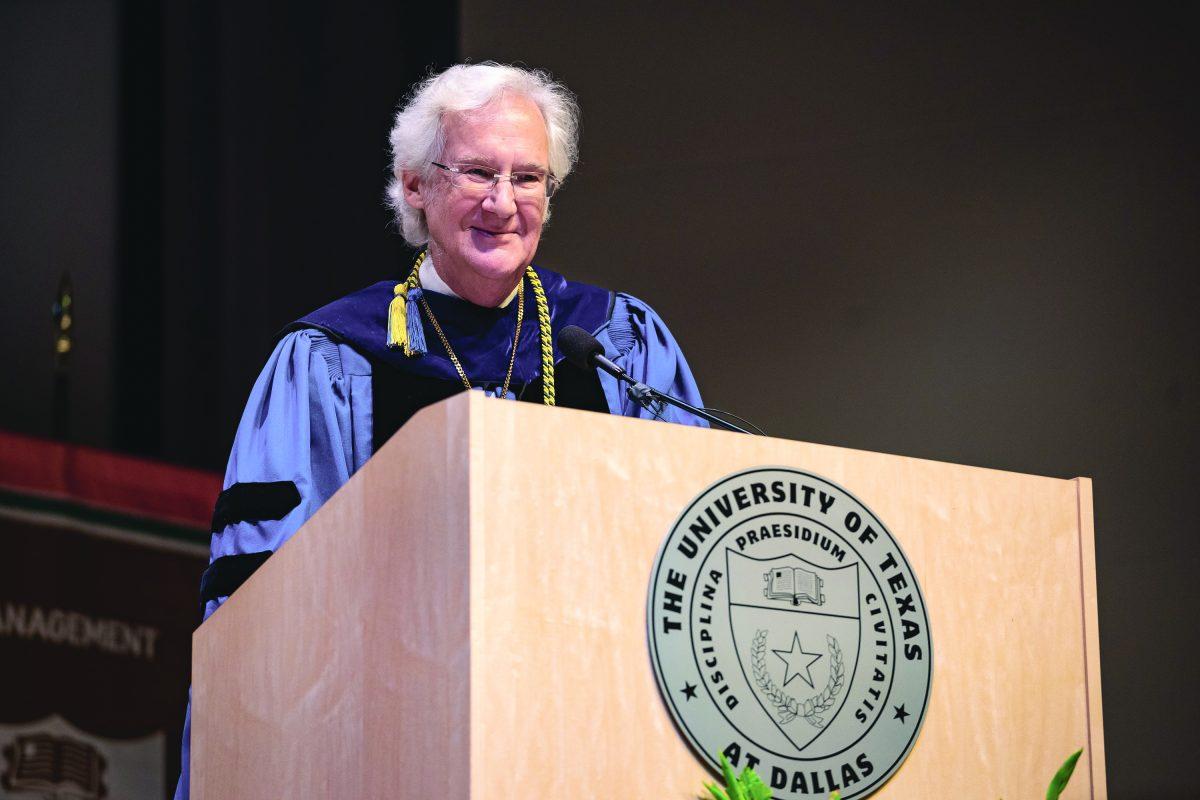Faculty reflect on his life, academic achievements
Faculty, staff and students are mourning the loss of a longtime professor in the school of Behavioral and Brain Sciences.
James Bartlett, a professor of cognitive neuroscience and cognitive psychology, passed away at the age of 70 on June 1. He was a UTD faculty member for 44 years.
Bartlett received his bachelor’s degree from UT Austin in 1970 before receiving a Ph.D at Yale in 1975. He started teaching at UTD that same year before being promoted to a UTD professor in 1990 and delivered the keynote speech at the Summer Hooding Ceremony in 2018.
Sandra Bond Chapman, the chief director at the UTD Center for BrainHealth and a Dee Wyly Distinguished University Professor, started working with Bartlett in 1986.
“Dr. Bartlett was actually one of my key mentors when I was getting my Ph.D. He was one of my dissertation professors and later became my colleague,” Chapman said.
Bartlett conducted a 2012 study where he discussed whether an expert chess player’s analysis of a board is similar to the attention paid by most people to new or familiar faces. In the study, Bartlett and the other researchers used functional magnetic resonance imaging (fMRI) to study the reactions the players have while playing chess. This study made Bartlett one of the first researchers to study holistic memory processing, or how people interpret nonverbal communication and expressions.
Bartlett served several roles during his time at UTD, his most recent including chair of the UT System Faculty Advisory Council from 2004 to 2005, head of the cognition and neuroscience Ph.D program from 2004 to 2015 and interim dean of BBS from 2015 to 2018. He was also a member of the American Psychological Society, Psychonomic Society, the Southwestern Psychological Association and the Configural Processing Consortium.
“He was very high-standard and sophisticated with his research. His work was demanding, challenging and always imaginative. He looked at the biggest picture to the smallest detail. He was someone who was all about innovative thinking,” Chapman said. “Jim was so passionate about science and meaningful experiences in life from travel, music, art… He really embraced life and science in a very dynamic way, and he was a very close friend and mentor.”
Bartlett’s publications include “True and False Recognition of Faces by Young and Old Adults,” which was published in 2014 and a chapter in “The SAGE Handbook of Applied Memory” titled “The Older Eyewitness,” which was published in 2014, among others. His publications were mainly focused on human perception and memory, as well as age-related differences. His biography on the UTD Endowed Chairs and Professorships website highlights Bartlett’s dedication in working with topics that weren’t often researched by many people.
“I think way too often in science people research things because other people are researching them. However, it is not that hard to just open your eyes and say, ‘Here’s a problem someone should be working on, even though no one is,’” Bartlett said in a statement on his biography page. “I want my research to help people, but at the same time, I’ve always had an instinctive desire to discover things. I tell my students it’s like Christmas morning when they come in with new data from a completed experiment. I don’t know where that comes from, it’s just instinctive — it’s the kind of thing that brings me joy.”











